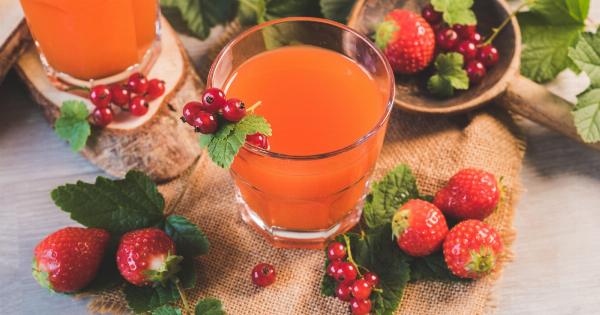Headaches are one of the most common health complaints, with approximately 50% of adults experiencing at least one headache per year. Headaches can be caused by a variety of factors, including stress, dehydration, lack of sleep, and poor nutrition.
While there are many medications available to treat headaches, some people prefer to manage their headaches with natural remedies, such as foods. In this article, we will explore how to manage headaches with foods.
Water
One of the most common causes of headaches is dehydration. When you don’t drink enough water, your body becomes dehydrated, which can cause headaches.
To prevent headaches caused by dehydration, it is important to stay hydrated by drinking plenty of water throughout the day. Aim to drink at least 8-10 glasses of water per day, and more if you are exercising or in a hot or humid environment.
Caffeine
Caffeine is a commonly used ingredient in headache medications because it can help relieve headache symptoms. However, too much caffeine can actually cause headaches.
If you consume a lot of caffeine on a regular basis, try cutting back to see if it helps reduce your headaches. On the other hand, if you don’t consume much caffeine, drinking a small amount, such as a cup of coffee, may help relieve headache symptoms.
Magnesium
Magnesium is an important mineral that is involved in many bodily functions. It can also help reduce the frequency and severity of headaches. Foods that are high in magnesium include spinach, almonds, cashews, and black beans.
Eating a diet that is rich in magnesium may help reduce your headaches.
Feverfew
Feverfew is an herb that is commonly used to prevent migraines. It is believed to work by inhibiting the release of certain chemicals in the brain that can lead to migraines.
You can consume feverfew in supplement form, or you can eat foods that contain feverfew, such as leafy greens, such as spinach and kale, and citrus fruits, such as oranges and lemons.
Ginger
Ginger is another natural remedy that can help reduce headache symptoms. It has anti-inflammatory properties that can help reduce pain and inflammation. You can consume ginger in supplement form, or you can add fresh ginger to your meals or drinks.
Ginger tea is a popular way to consume ginger and is easy to make by steeping fresh ginger in hot water.
Omega-3 Fatty Acids
Omega-3 fatty acids are a type of healthy fat that are important for brain health. They can also help reduce inflammation, which can help reduce headache symptoms.
Foods that are high in omega-3 fatty acids include fatty fish, such as salmon and sardines, as well as flaxseed, chia seeds, and walnuts.
Protein
Protein is an essential nutrient that is important for many bodily functions, including the production of neurotransmitters, which can affect mood and pain. Eating a diet that is high in protein may help reduce headache symptoms.
Foods that are high in protein include lean meats, poultry, fish, beans, and tofu.
Whole Grains
Whole grains are an important source of carbohydrates, which are the primary source of energy for the body. Eating a diet that is high in whole grains may help reduce headache symptoms.
Foods that are high in whole grains include whole wheat bread, brown rice, quinoa, and oats.
Vegetables
Vegetables are an important source of nutrients, including vitamins and minerals, that are essential for overall health. Eating a diet that is high in vegetables may help reduce headache symptoms.
Green leafy vegetables, such as spinach and kale, are particularly beneficial because they are rich in magnesium and other nutrients that can help reduce headaches.
Hydration Tips
In addition to drinking plenty of water, there are several other ways to stay hydrated and prevent headaches. Eating water-rich foods, such as cucumbers, watermelon, and celery, can help keep you hydrated.
Avoiding alcoholic and sugary drinks, which can dehydrate you, can also help prevent headaches. Lastly, be sure to drink water before and after exercise to prevent dehydration.
Conclusion
Headaches can be debilitating and interfere with daily life. While medications are often used to treat headaches, natural remedies, such as foods, can also be effective.
By incorporating the foods mentioned in this article into your diet, you may be able to reduce the frequency and severity of your headaches.





























